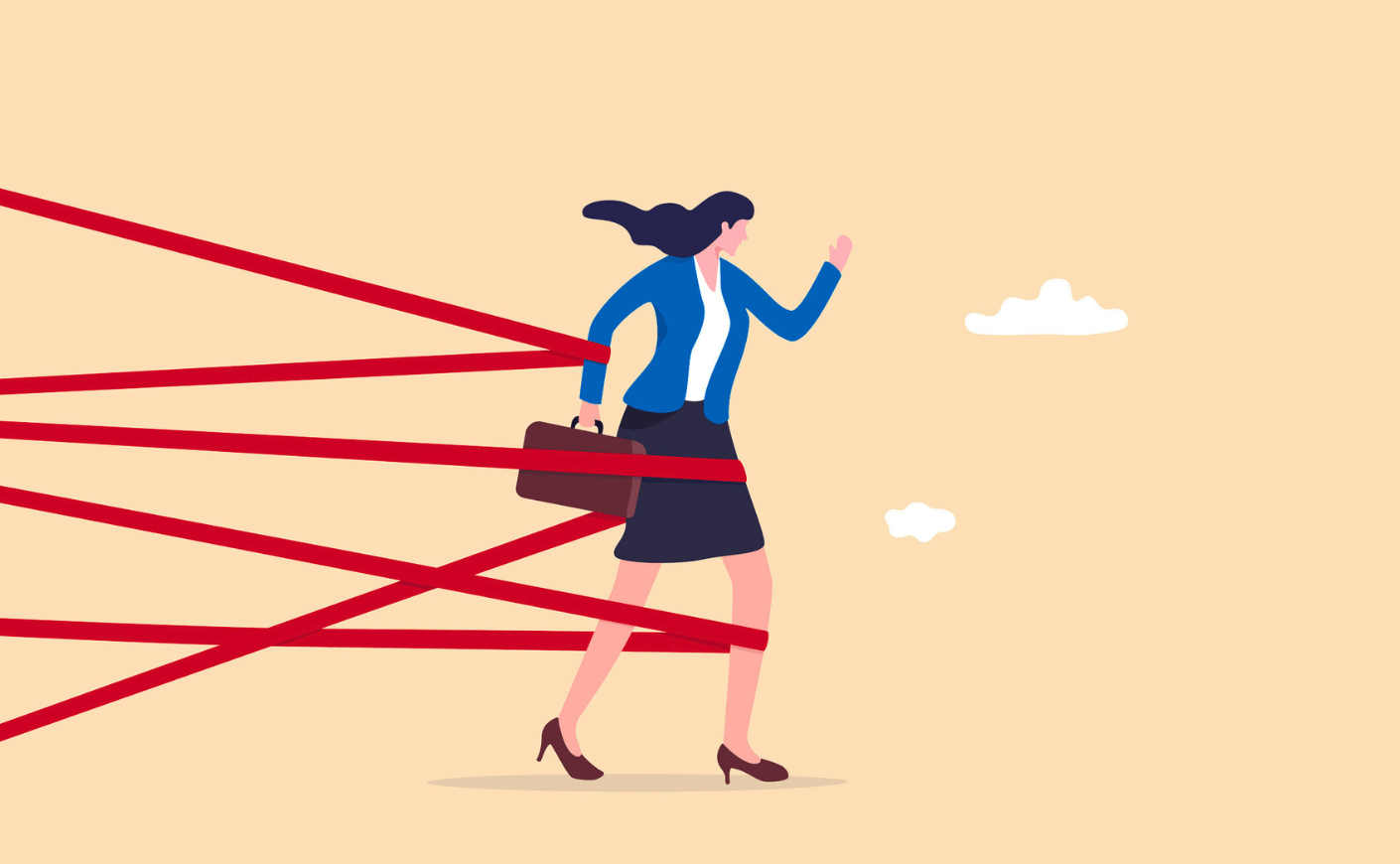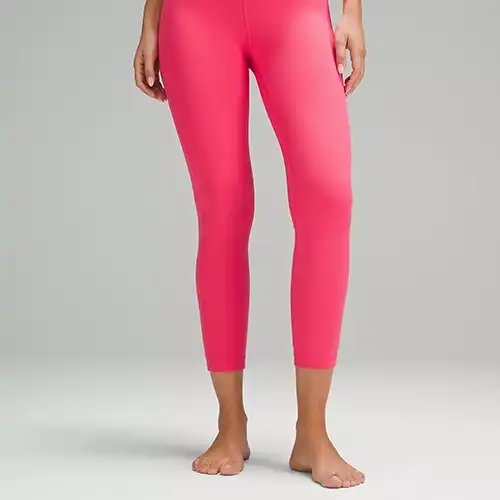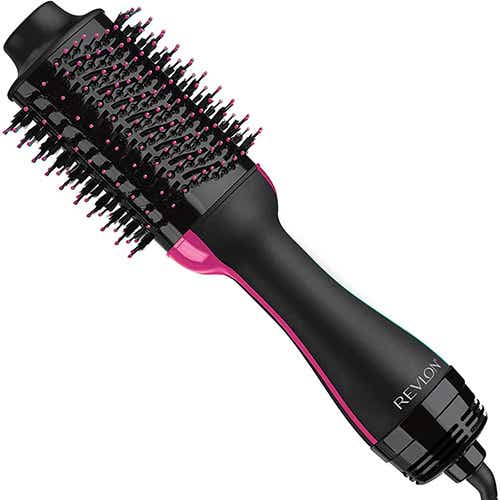Plus, an expert explains how to shut down ageism in the workplace.
Like it or not, you’ve probably been affected by ageism at some point in your life, whether it happened when you were 16 or 60. After all, the World Health Organization defines ageism as “the stereotypes…prejudice…and discrimination…towards others or oneself based on age” — a broad definition that encompasses plenty of undesirable experiences. It often manifests itself in the workplace, which means that if you’ve ever heard you’re too old or too young for that fabulous promotion, you’ve been the victim of ageism at the office. But this phenomenon, unsurprisingly, affects women in a pretty striking fashion.
A July 2023 report in the Harvard Business Review entitled “Women in Leadership Face Ageism at Every Age” shows that women are usually either seen as “too young” or “too old” for professional advancement. Meaning there’s no magical sweet spot at which women are largely seen as competent, and at the peak of their careers.
To get more details on this worrying research and what it means for your career, we caught up with the authors of the report — Amy Diehl, PhD, Leanne M. Dzubinski, PhD, and Amber L. Stephenson, PhD — two of whom also co-authored a book titled Glass Walls: Shattering the Six Gender Bias Barriers Still Holding Women Back at Work.
We also spoke to Janine Vanderburg, co-founder and current Senior Strategist for Changing the Narrative, a campaign to fight ageism. She delivered much-needed advice on how to identify and battle the ageism that might be holding you back.
What is “gendered ageism”?
Gendered ageism, as the report says, “sits at the intersection of age and gender bias and is a double whammy where there is ‘no right age’ for professional women.” In other words, employers and colleagues might bypass a 20-something woman for a promotion because she’s “too young” — but when she’s 50-plus, she’s suddenly “too old.”
In their survey research, Diehl, Dzubinski, and Stephenson heard from 913 U.S. women leaders spread across four industries — higher education, faith-based nonprofits, law, and health care.
Those are pretty disparate industries, but the results of the poll showed some unfortunate through-lines. “It was interesting to see the commonalities in different age groups,” Diehl says. “For younger employed women, [ageism] was a challenge to their credibility. With the later career women, [ageism] was more of a challenge to their relevance. In the middle, it almost seemed like there was a challenge to their commitment, to be a team player, or work well in the office.”
“For men,” Diehl continues, “they’re considered to be in the prime time of their careers when they’re in their forties and fifties. But at those ages, women are seen as menopausal and difficult to manage.” As Diehl clarifies, “We call it ‘gendered ageism.’ And it certainly is gendered ageism, but because it happens across all ages, it’s really just sexism.”
Stephenson adds that “gendered ageism” is particularly harmful because workplace culture is comparatively open about any form of ageism. “When you think about biases, [ageism] is still very overt. With our other research and the other areas that we focused on, there was a subtle nature to what we were looking at,” Stephenson says. “But with ageism, we really see that it’s still something that is socially acceptable. It’s normative. We have jokes about it, we make memes about it, we have cute generational catchphrases about it.”
Vanderburg says that this recent report gave voice to patterns she’d long since noticed as a leader. “The article was not a surprise to me,” she explains. “The surprise was that some people found the article surprising. [Ageism in the workplace] is not isolated to a single community. It’s rampant and especially directed against women.”
How can you fight ageism in the workplace?
Dzubinski says that the first step to fighting ageism is to name it — and to accept that it’s not personal. “Up until the point of discovering this kind of knowledge, women are very easily convinced that [ageism] is actually personal to them. [But it’s] the system that we live in.”
How can women dismantle that system, aside from accepting that no individual is the problem? Dzubinski says that we can act as allies for our coworkers. “Oftentimes when an age-related comment happens, the woman who’s the subject is not in the room,” Dzubinski says. “It may be in the context of a hiring committee, or a promotional decision where somebody says, ‘She’s just too young.’ Maybe they say it in a more subtle way — ‘She’s got too many family responsibilities.’”
“Since these things happen when the woman is not in the room,” says Dzubinski, “it’s really important that we shed light on this issue and that everybody’s aware of it, so that a colleague, an ally, or a leader can stop it in its tracks and say, ‘Hey, that’s not right.’”
Vanderburg says that you can also change your workplace culture by directly asking to address the issue at hand: “As individuals within companies, we need to say, ‘It would be a good idea in our next professional development session to have someone come in and talk to us about ageism. Someone should talk about how we can attract older workers, so we have an age-diverse team.’”
Vanderburg also advocates for calling out small details: “We need to look at our imagery when we’re hiring. If we say we are open to people of all ages, and our website and our job postings only show people in their twenties, we’re sending a message to older people: You’re not welcome here.”
Vanderburg also cautions women to avoid internalizing ageism and turning against themselves. “Very often, we’re so surrounded by ageist messages that we make ageist statements about ourselves — ‘Oh my God, the new software, am I going to have to learn that?’ Or younger women might say — ‘I’m not sure I’m ready for that opportunity. I’m too young.’”
As Vanderburg says, sometimes you need to be your own best advocate, “Don’t count yourself out. If someone is offering you an opportunity, you’re ready.”













